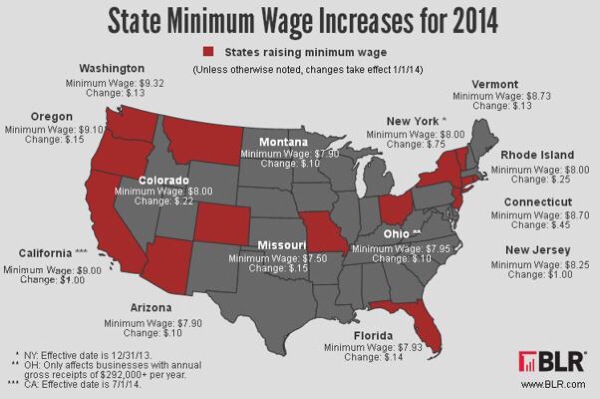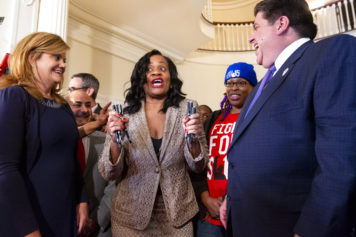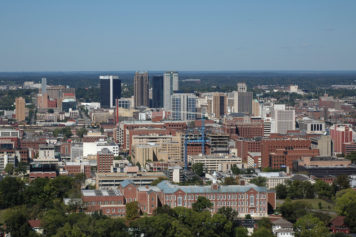No political idea is being as heavily test-marketed these days as the minimum wage.
The Seattle City Council voted Monday to raise the minimum wage to $15 an hour — more than double the federal rate of $7.25 and almost 50 percent more than the $10.10 per hour figure favored by President Barack Obama.
Seattle may soon be followed into the $15 range by Chicago and San Francisco. Three states this year have already approved the $10.10 figure: Connecticut, Hawaii and Maryland. An increase to $10.50 in Vermont awaits approval from Democratic Gov. Peter Shumlin.
These big raises for the lowest-paid workers could help settle a long-standing economic debate — whether the minimum wage itself harms employment.
But it probably won’t.
“Things like this will help inform the debate, but I certainly wouldn’t expect it to be resolved,” says Michael Strain, an economist at the conservative American Enterprise Institute.
There’s already a good amount of variation in minimum wage rates around the country. Twenty-two states require employers to pay workers more than the federal minimum.
There was a famous study 20 years ago that showed an increase in the minimum wage in New Jersey didn’t harm employment among fast-food workers, compared with those who made less in neighboring Pennsylvania.
More recently, restaurant employment hasn’t tanked in cities and states where tipped workers receive much higher base wages than required under federal law.
“One value of these citywide increases is that they serve as a really public and really visible demonstration that these wage increases are affordable for businesses,” says Jack Temple, a policy analyst with the National Employment Law Project, which favors minimum wage increases.
Read the full story at NPR.org


